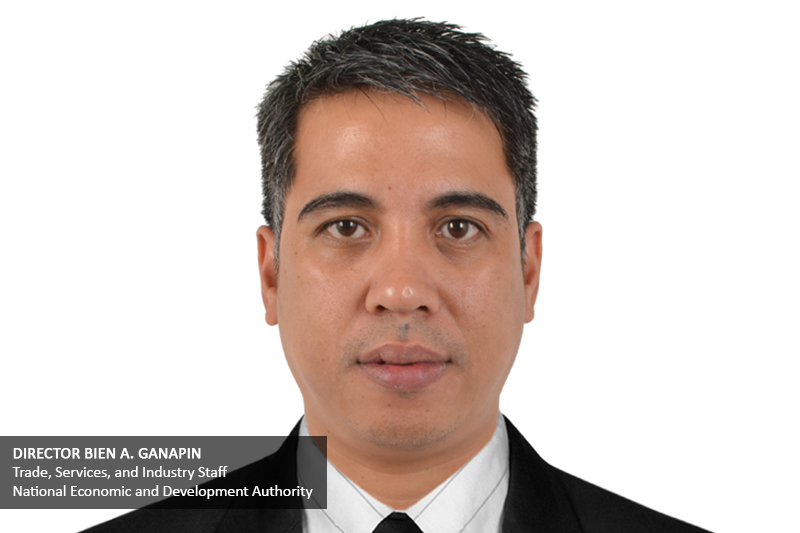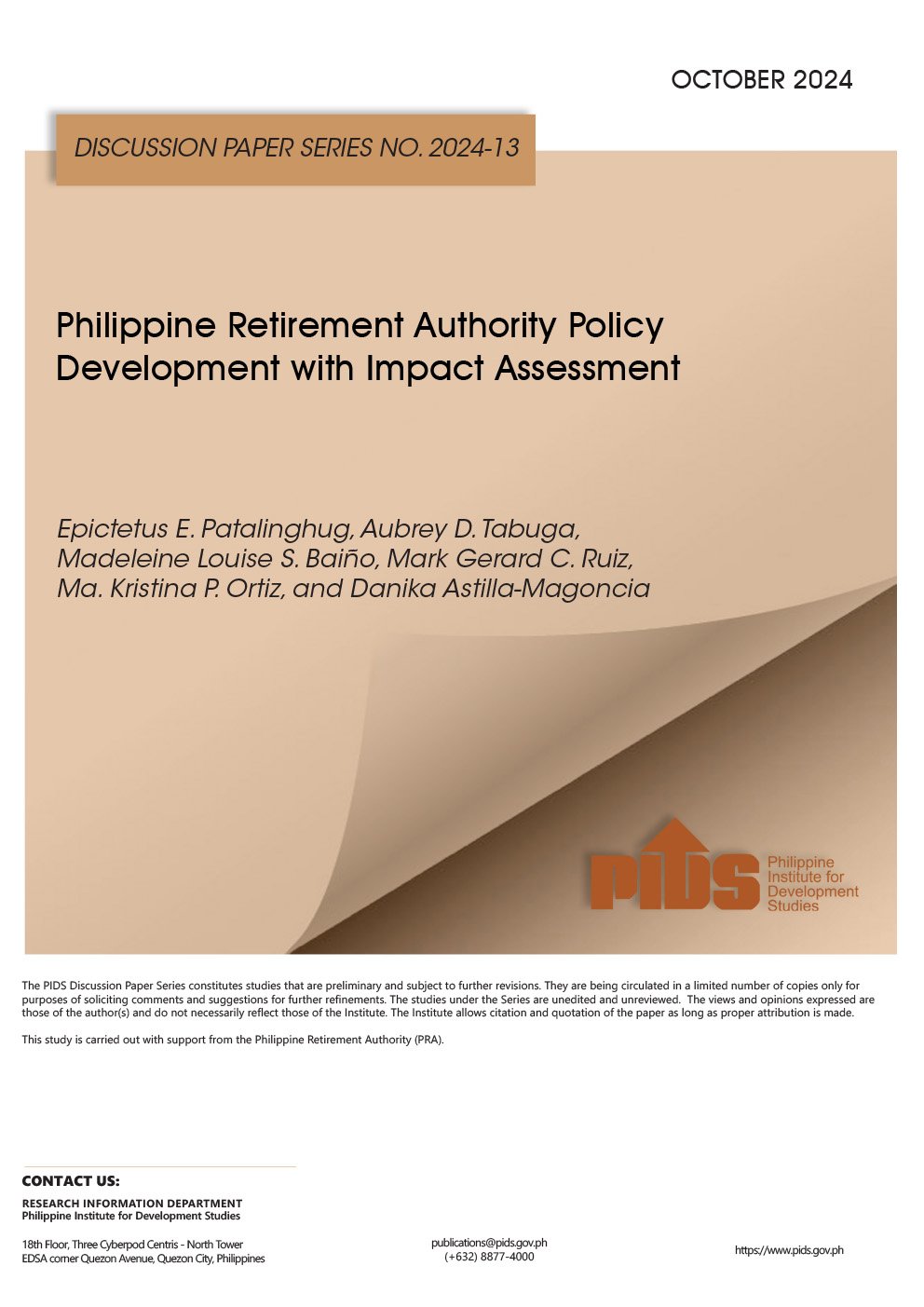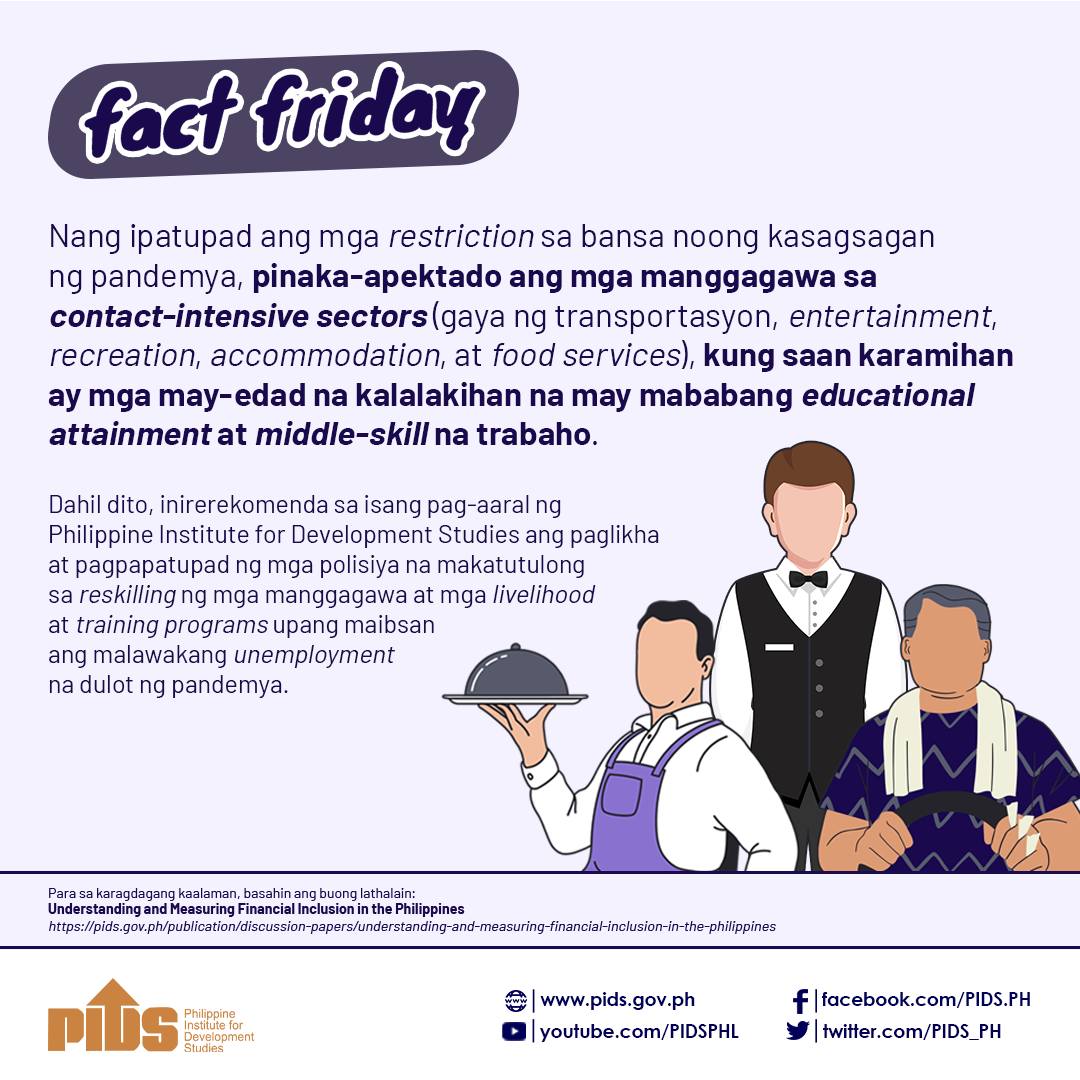
There is a need to improve the country’s governance structure for services trade negotiations.
This was according to Trade, Services, and Industry Staff Director Bien Ganapin of the National Economic and Development Authority during a webinar recently organized by the Philippine Institute for Development Studies.
Ganapin pointed out that while one agency may be in a better position to handle the country’s negotiations, it should have the expertise and legal mandate to lead trade negotiations. He cited countries like Japan, South Korea, and Australia that have one agency handling foreign affairs, trade, and investment negotiations.
He also underscored the need to establish the scope of various governing bodies concerned in services trade negotiations.
“The hierarchy of clearinghouses for Philippine positions, at least in the ASEAN, should be fully utilized for more effective coordination,” Ganapin said, adding that the government may explore the creation of a “Philippine Trade Representative Office”.
The NEDA director also identified other issues concerning the country’s service trade agreements. Ganapin noted that the Philippines’ existing policy regime, particularly foreign equity limitations, remains restrictive.
“[The amendment in] some of the priority economic reforms, including the Public Service Act, Retail Trade Liberalization Act, and Foreign Investments Act will relax [the] limitations, especially in the services sector, and allow the country to be more attractive as [a free trade agreement] partner,” he said.
On the depth and coverage of the country’s commitments under the different agreements, Ganapin said the General Agreement on Trade in Services (GATS) is “not as extensive” as the Philippines-Japan Economic Partnership Agreement and the ASEAN Framework Agreement on Services in terms of the number of sectors and subsectors and the level of commitment in foreign equity participation.
“This is because the GATS schedule, which was still committed under the Uruguay Round, has not been improved since 1995. Although the Philippines was ready to submit additional offers [and] improvements, negotiations, unfortunately, came to a halt,” he explained.
Concerning the inclusion of fewer sectors in the schedule of commitments, Ganapin maintained that scheduling commitments below the existing regime allows for policy space in negotiations.
“The policy space [considers] the possible change in regulations during negotiations. Also, the successive rounds of negotiations provide flexibility for the country to improve its offers,” he said.
Finally, Ganapin highlighted the need to better capture the utilization of services trade agreements.
“We have no standard way of measuring [the utilization of trade agreements] for services trade, making it difficult to monitor and assess,” he concluded. ###
You may watch the webinar at https://fb.watch/bFz9gEr7kR/ or https://youtu.be/ScVL8fbNytU.
For more videos of PIDS events, go to https://www.pids.gov.ph/videos.












